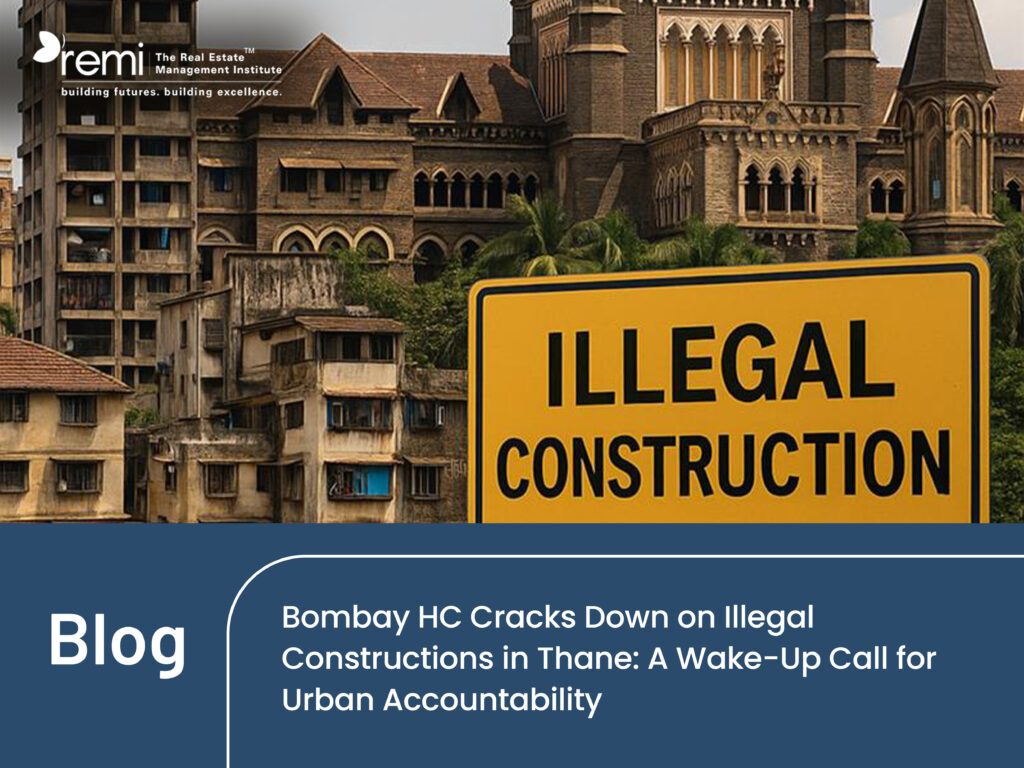In a landmark decision to curb rampant illegal constructions in Thane, the Bombay High Court has ordered strict action against unauthorized buildings and civic authorities who ignore them. The court’s directives include cutting off water and electricity to illegal structures and holding municipal officers personally accountable for lapses.
The Issue at Hand
Thane, a rapidly urbanizing city near Mumbai, has witnessed a surge in illegal constructions, often in ecologically sensitive zones. These developments violate building codes, threaten public safety, and harm the environment. For professionals keen to understand these regulations in depth, programs like the Land Development and Legal Frameworks course provide valuable insights into compliance, zoning laws, and sustainable development practices.
The court noted that such projects are often backed by fraudulent documents and aided by municipal inaction—an abuse of administrative power and public trust.
Key Directives by the Court
The Bombay HC instructed the Thane Municipal Corporation (TMC) and other civic bodies to:
• Deny water and electricity to unauthorized buildings.
• Refuse new connections without complete legal documents.
• Require affidavits from builders and buyers on construction legality.
• Publish lists of legal/illegal structures online.
• Create vigilance cells to monitor construction.
• Enforce personal liability for civic officials in case of non-compliance.
These measures demand skilled professionals who understand both the business and compliance sides of real estate. The Real Estate Business Management program equips industry players with the expertise to navigate legal requirements, operational challenges, and ethical practices effectively.
The court also suggested using QR-coded circulars for verifying building permits.
Accountability of Civic Authorities
This ruling shifts focus from penalizing only builders to also holding municipal officers responsible for illegal developments under their jurisdiction.
Implications for Builders and Buyers
Builders will now face stricter document checks and inspections. Homebuyers risk losing basic amenities if they purchase flats in illegal buildings, making due diligence essential. They must also ensure that projects meet safety and infrastructure standards, including mechanical, electrical, and plumbing systems. Courses like Fundamentals of MEPF help professionals evaluate these critical aspects before a project is approved or purchased.
A Step Toward Sustainable Urban Development
Illegal constructions strain infrastructure, degrade the environment, and endanger lives. The court’s stance highlights the need for lawful, planned growth and serves as a warning for municipal bodies across India.
Conclusion
This decision is a major step toward safer, more sustainable cities. For Thane and other urban centers, it could mark the start of long-overdue reform—driven by strict law enforcement, civic responsibility, and transparent governance.

